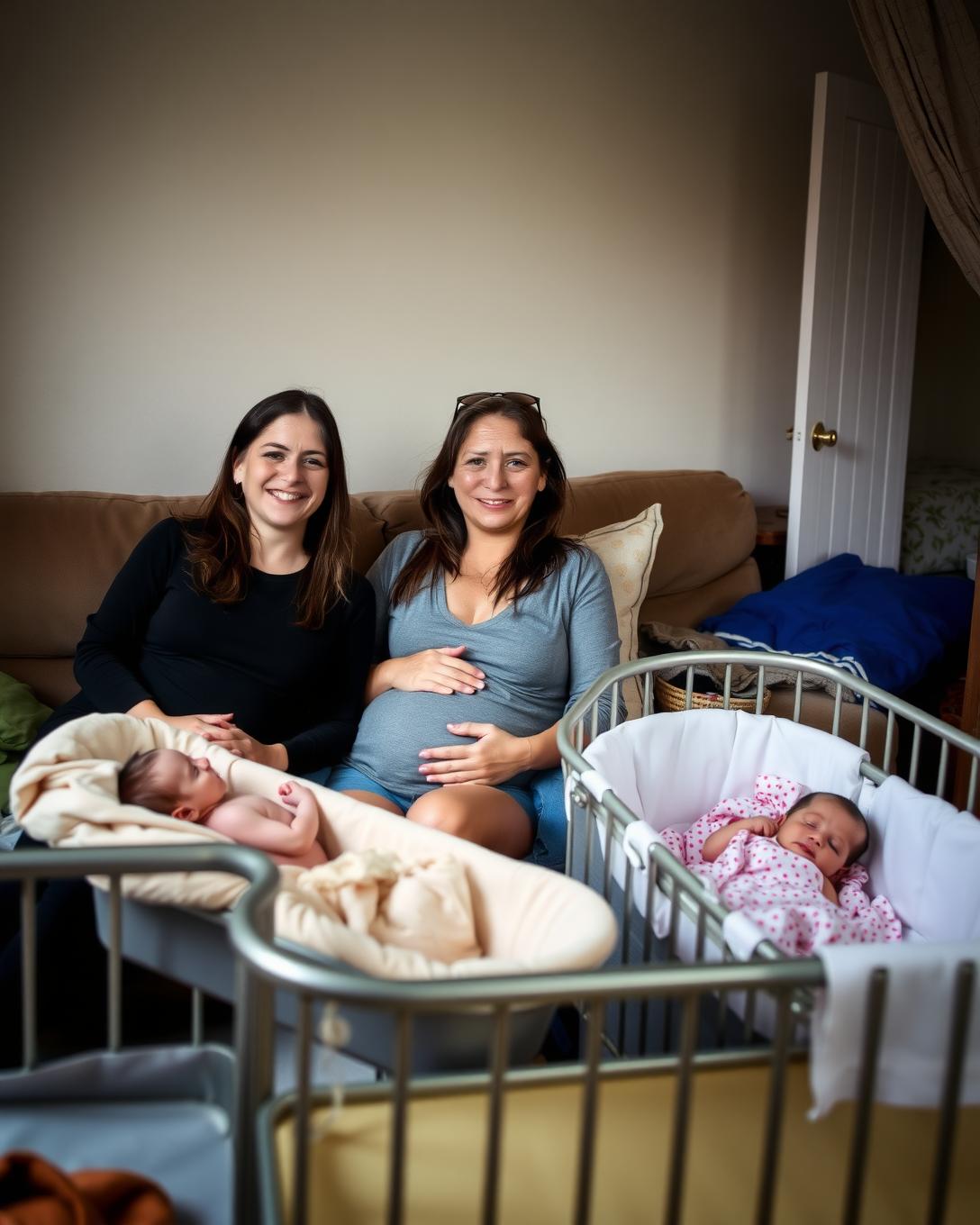“Oh, for heaven’s sake, what a foolish girl you are! Who’s going to want you now, with a child on the way? And how do you plan to feed it? Don’t look to me for help—I’m telling you now. I raised you, and now you dump your mess on me? Get out of my house. I don’t even want your shadow near me!”
Catalina lowered her head, swallowing the insults. Her last hope—finding shelter in her aunt’s house until she could land a job—was fading like smoke in the wind.
“If only my mother were still alive…”
She had never met her father, and her mother had died fifteen years ago, struck by a drunk driver at a crosswalk. When the authorities were about to send her to an orphanage, a distant cousin of her mother’s appeared—a middle-aged woman with a house in a small Andalusian village—who agreed to take her in.
They lived on the edge of a whitewashed village near Granada, where the summers scorched the earth and winters soaked it with cold rain. Catalina always had food on the table and clean clothes to wear, and she learned to tend the garden and animals, but affection was something she only saw in books.
She went on to study teaching at university. When she graduated, she returned to the village, full of hope. But her aunt’s welcome was like a slap to the face.
“Get out of here. I don’t want to see you.”
“Aunt Ana, please… even just for a few days…”
“I said leave.”
With her suitcase in hand, Catalina stepped into the street. She had never imagined coming back like this—ashamed, abandoned, and pregnant. Her belly barely showed, but the truth had slipped from her lips before she could stop it.
She wandered under the blazing August sun, her throat dry. The courtyards overflowed with bunches of muscat grapes, and the air smelled of basil and fresh tortillas. When she saw a woman in front of a house draped in ivy, she found the courage to speak.
“Excuse me, could I have a glass of water?”
The woman, a sturdy woman in her fifties named Paula, handed her a jug.
“Come in, if you mean no harm.”
As Catalina drank, Paula’s eyes drifted to the suitcase.
“You’re not from around here, are you?”
“I’m looking for work as a teacher. I need a place to stay.”
Paula, whose loneliness weighed more heavily than her finances, offered her a room.
“You can stay. The rent’s little, but I need it paid on time.”
The room was plain—just a bed, an old wardrobe, and a window looking out onto the garden. Soon after, Catalina started teaching at the local school. Days passed quickly, filled with lessons and evenings spent eating gazpacho with Paula beneath the grapevine.
Her pregnancy progressed without complications. One afternoon, she finally shared the truth about the baby’s father—a university romance with Ignacio, the son of professors, who had turned his back on her the moment she told him. Paula held her gently.
“You’re brave, keeping the baby. Life has strange ways of turning around.”
But Catalina had no hope. She still remembered the way Ignacio had left her an envelope full of money without even meeting her eyes, walking away without a word.
In February, she was admitted to the public hospital and gave birth to a healthy boy she named Jorge. While there, she met a baby girl left behind by her mother—a tiny infant, the daughter of a Guardia Civil captain.
“Poor thing…” Catalina whispered as she cradled the baby. She called her Mariela.
A few days later, Captain Diego Martínez came to the hospital. He was tall and serious, but something in him softened when he saw Catalina nursing his daughter.
On the day Catalina was discharged, a car waited outside, decorated with pink and blue balloons. Diego helped her into the front seat as she held Jorge close. Then he handed Paula an envelope with adoption papers—and a house key.
“Sometimes life gives back what you’ve given,” Paula said softly as the car pulled away, heading toward a new home where children’s laughter would soon fill the air.
No one in the village ever forgot how fate, unpredictable as the Levante wind, weaves stories where no one expects them.
